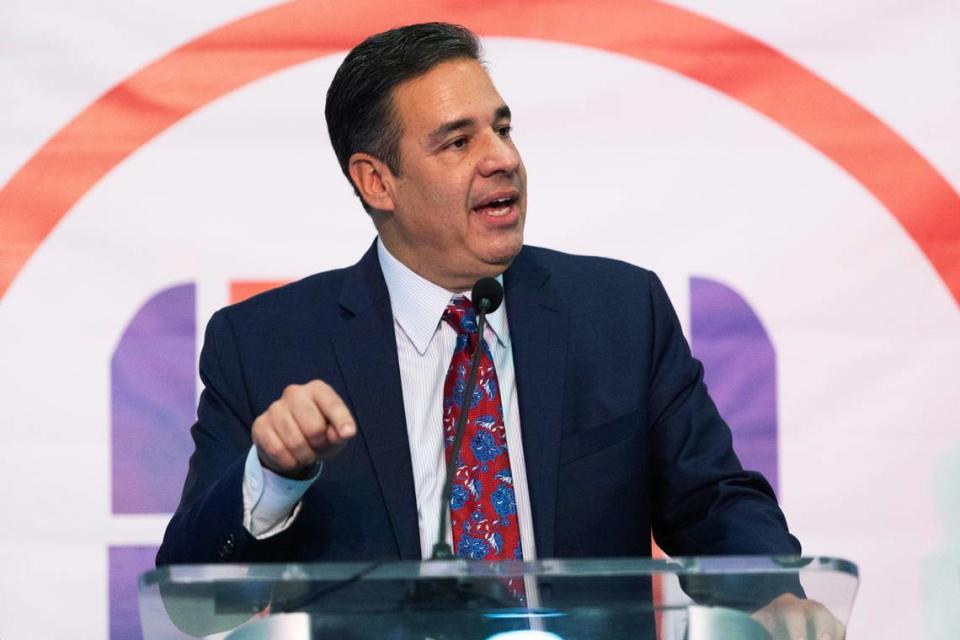Attorney General Raúl Labrador wants court to let Idaho enforce abortion ‘trafficking’ law

Idaho Attorney General Raúl Labrador has asked a court to let the state enforce its limitations on out-of-state travel for abortions while a lawsuit challenging its constitutionality proceeds.
In a Tuesday court filing, Labrador’s office asked the U.S. District Court of Idaho to allow him to enforce the state’s law after a judge ruled against him earlier this month. U.S. District Magistrate Judge Debora K. Grasham temporarily stopped the state from enforcing its law, which criminalizes assisting minors in obtaining abortions without their parents’ consent.
The law bars adults from helping minors travel out of state for abortions or obtain abortion medications. Abortion is illegal in Idaho but not in neighboring states, like Oregon and Washington. The law is referred to as an “abortion trafficking” ban in statute.
In July, a coalition of plaintiffs, including Northwest Abortion Access Fund and Indigenous Idaho Alliance, sued Labrador and argued the new law violates people’s rights to interstate travel and other freedoms, while preventing reproductive health care advocates from assisting pregnant teens. Grasham dismissed the interstate travel arguments but has allowed the rest of the lawsuit to proceed.
Grasham wrote that “this lawsuit is not about the right to an abortion. It is about much more. Namely, longstanding and well recognized fundamental rights of freedom of speech, expression, due process and parental rights.”
Labrador appealed Grasham’s ruling to the 9th Circuit Court of Appeals on Nov. 22 and asked Grasham on Monday to undo her ruling that temporarily blocks the law from being enforced.
James Craig, the acting division chief at the attorney general’s office, wrote in the Monday filing that the state’s abortion laws are “designed to protect the welfare of children,” which should not be prevented because “plaintiffs believe that their view of what is in the best interests of a minor should trump the wishes of that minor’s parents, or the policy decision of the people of the state.”

 Yahoo Sports
Yahoo Sports 
